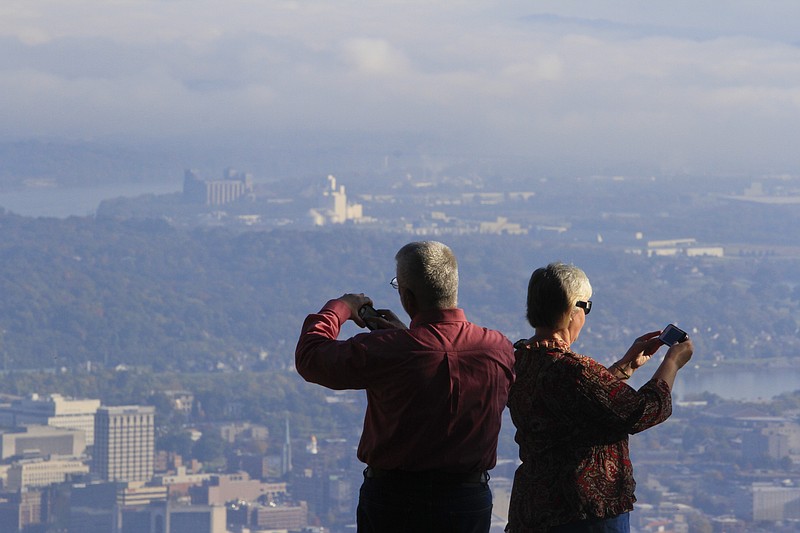Chattanooga's got a lot going for it - mountains, a river, a vibrant downtown, not to mention crazy-fast internet.
The city also has a great story. People speak with pride about "the Chattanooga Way," referring to the can-do attitude of the city's residents and their willingness and ability to pull together and fix problems. Nearly four decades ago, the city's residents collaborated in an effort that resulted in a transformation of the city's downtown.
People from around the world still come to Chattanooga to study how it was done and to figure out how to replicate the Chattanooga Way in their cities.
Since the 1980s, the city's reputation has been on the upswing. But we also face intractable social problems - the ranks of poor residents have swollen, families are slipping into poverty, affordable housing is in short supply, schools are not preparing their graduates for the workforce.
Chattanooga is on a cusp. The city has important decisions to make about what it wants to be moving forward.
___
Last year, the Times Free Press published an eight-part series called "The Poverty Puzzle," which explored why it is difficult to escape poverty in Chattanooga. After those stories published, several people in the community approached our reporters. They suggested they delve into why the city so successfully fixed its riverfront and improved its physical landscape, but failed to make strides improving the deep societal problem its residents face.
Study our city's history, they urged. Look at what we did in the '80s, they said. Once, we came together and fixed our problems, they said.
In the 1980s, thousands of regular Chattanoogans were part of a movement that planners and academics still study.
Academic case studies have been done about Venture, a decade-long effort to improve the city and life for its residents. Venture succeeded, in part, by doing something simple: asking Chattanoogans what they want and using that citizen participation to help form the city's agenda. In other words, planners listened to residents and actually took their input to heart.
Many of the things residents wanted back then today are considered gems, fixtures that make Chattanooga's downtown so inviting: A walking path along the river and a fishing pier, for example.
But after Venture fell apart, opportunities for public input slowly dwindled. Today, public input is often sought only after ideas for something big (say, a new baseball stadium) are already pretty far down the path. In the case of the proposed new minor league stadium, foundry owners, city and county political leaders and Chattanooga Lookouts officials had been talking about a potential stadium and related development well before the public meetings.
By the time the public gets it say these days, "the deals have already been cut," a local elected official told me.
Meanwhile, let's look at some of the biggest news stories in recent years.
The Occupy movement, which spread to hundreds of U.S. cities for about a six-month period in 2011 and 2012. The groundswell of support for unconventional political candidates such as Bernie Sanders and Donald Trump. These are all based on the same thing - people feel disenfranchised. They feel unheard or even worse, they feel as if they don't even have the opportunity to speak.
Americans, not just Chattanoogans, don't feel like government and community leaders are listening. They don't feel they have a say in how their communities develop. And that frustration is only growing.
___
The newspaper indeed did go back and look at what happened in the '80s and how public input changed over time. Today, the Times Free Press publishes the results of that work, a three-part series called "The Lost Way."
Reporters Joan Garrett McClane and Joy Lukachick Smith surveyed dozens of academic case studies on Chattanooga's rebirth, read six books, reviewed thousands of documents and interviewed more than 50 people.
To some, "The Lost Way" will be a tale about the city's past and some of its storied figures. To others, it'll be a lesson on what could be.
Outsiders may see a mid-sized city in a fly-over state. But Chattanooga has always been a city that thinks big, and it can check off an impressive list of big, high-profile successes.
Once, it showed the world that a community can engage its citizens and create a successful plan.
Perhaps "The Lost Way" will remind us that it takes a willingness to work together if we are going to solve our most formidable problems.
Alison Gerber is the editor of the Chattanooga Times Free Press. Reach her at agerber@timesfreepress.com or on Twitter at @aligerb.
